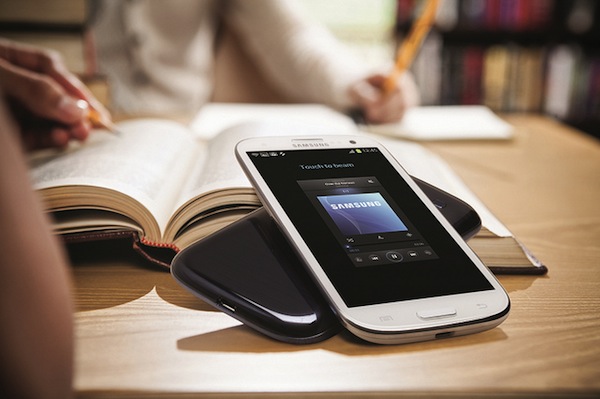
Will you buy Samsung Galaxy S III?
Eleven days have passed since Samsung unveiled Galaxy S III, which goes on sale internationally on May 29. Galaxy S III and HTC One X are arguably the hottest Android smartphones currently available, thanks in part to quad-core HSPA+ models. But HTC One X is dual-core for LTE variants hitting these shores, subsidized from carriers; no final word yet on S3. I often ask buying questions like this one right away but waited to see what pricing would pop for Galaxy S III. Expansys-USA is taking preorders in pebble blue or white for $649.99. Pricing isn't available for 32GB or 64GB models.
I call out Expansys USA, because pricing is the best I've seen so far, and it's lower than expected. The $799.99 seen most elsewhere is more in line with unlocked Galaxy S II and Galaxy Nexus when they launched internationally. Through Amazon, Techno Trading House (a new reseller to me) lists the pebble blue model for $824, available June 2, although it's only $744 purchased direct. My simple question: Will you buy? Either unlocked for no-contract price or lower locked price from a carrier with contractual commitment -- the latter an option available in Europe before Stateside?
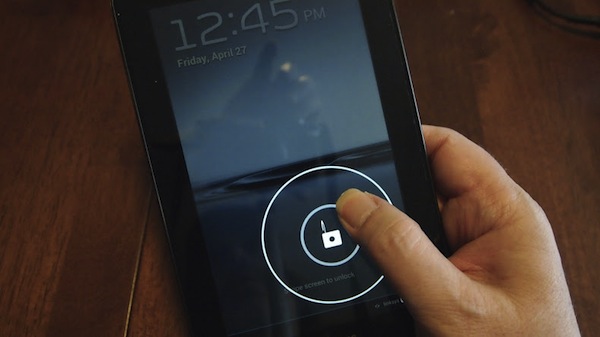
Samsung Galaxy Tab 2 7.0 review
I really like reviewing products, but don’t have the time or patience to measure battery life or benchmark the CPU, etc. I'm more interested in how a product like Galaxy Tab 2 7.0 fits in the scheme of things. How it suits real people.
So far, I think this tablet has gotten an unfair shake among major media. But the reviews at shopping sites tell the real story. This is a nice little tablet. The price is right, too, and it comes with Android 4.0 (aka Ice Cream Sandwich).
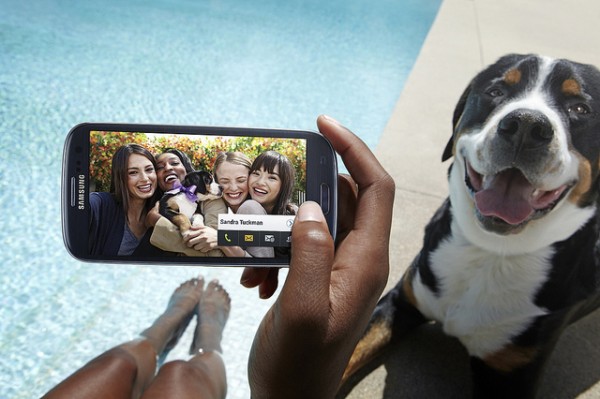
Is iPhone 4S obsolete?
I repeatedly ask you questions in headlines, because I ask myself. This one is top of my mind following today's Samsung Galaxy S III announcement. My eyes bugger at the differences in size, features and most importantly benefits -- the majority of those coming from Samsung skinning Android 4 into seeming oblivion. It's hard to discern a way that Galaxy S3 isn't superior to iPhone 4S. If iOS 5 looked antiquated before, and it surely did, Samsung's TouchWiz-modified Ice Cream Sandwich makes it suddenly ancient.
But the question is bigger than hardware or software. Samsung isn't the world's No. 1 handset maker overall and in smartphones by lark. Apple is known for focusing on delivering benefits that matter, sometimes at the expense of hardware capabilities, and truly aspirational marketing. Galaxy S III evokes these qualities, with something more: real benefits without sacrificing hardware capabilities while using software to enrich the human experience. Then there's the aspirational marketing, as seen in the embedded video. Samsung does something Apple-like, only better.

5 things you should know about Samsung Galaxy S III
Earlier today, Samsung unveiled the newest member of its Galaxy S family of Android-based smartphones, the Galaxy S III, at London's Earl's Court Exhibition Center at a press event dubbed "Samsung Mobile Unpacked 2012". Was it the disappointment that some people predicted? Hell, no! Not to me, at least. And I am going to tell you why.
Right up to today's launch event, there were many rumors/predictions saying that we would see a device with a 4.6 - 4.8 inch Super AMOLED screen, Samsung's new quad-core processor (Exynos 4420) running at 1.4 GHz, 1GB of RAM, and 4G connectivity (at least in markets that currently support it). All of these predictions came true. But there's more -- five things that set Galaxy S III apart from other Samsung smartphones and those from competitors.
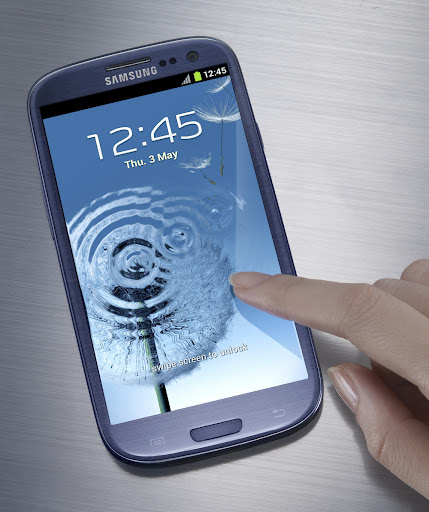
Samsung unveils Galaxy S III with natural user interfaces, better camera
Leading Android smartphone maker Samsung on Thursday announced the latest installment in its two-year old line of Galaxy S smartphones, the Galaxy S III.
Here are the specs, straight from Samsung:
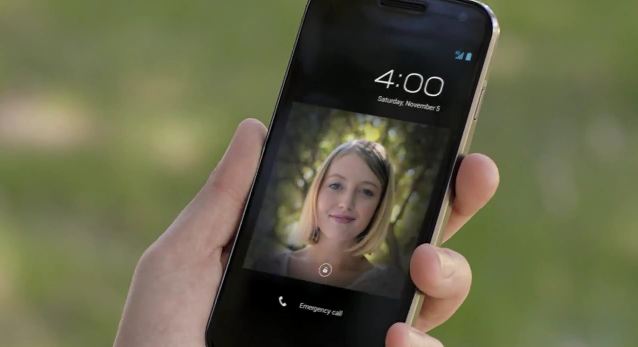
Who will buy Galaxy Nexus from Google?
While we wait for Samsung to unveil its new smartphone in a few hours, for your waiting pleasure I've got answers to the question posed last week: "Would you pay Google $399 for unlocked, HSPA+ Galaxy Nexus?" The search and information giant ended April with a May flower: Direct sales of its flagship, Android 4.0 smartphone, presumably because AT&T and T-Mobile aren't doing so.
Google's got a good thing going here for Android enthusiasts, but I've got a problem with the direct sales thing. What Apple offers that its rival can't: Service. People buying iPhone can get defective replacement at local Apple stores. They also can purchase, granted for an extra 99 bucks, AppleCare+, which extends the basic warranty and provides discounted replacements. If you drop and break iPhone 4S, Apple will replace it for $49, up to two times. What's Google going to do for you, if Galaxy Nexus goes bust or you bust it up?
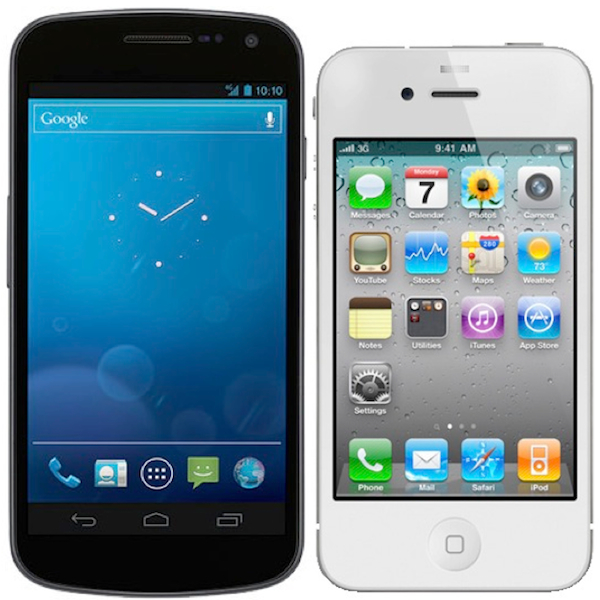
Samsung smartphone shipments soar stunning 267%, trouncing iPhone
Apple apologists' brief respite is over. Late last week, IHS iSuppli and Strategy Analytics released first quarter data putting Samsung handset shipments ahead of Nokia, ending the Finnish company's 14-year reign. But the analyst firms couldn't agree on smartphones, with Strategy Analytics positioning Samsung ahead of Apple, but IHS giving the nod to iPhone. The Apple Fanclub clung to the "We're No. 1!" data, unsurprisingly. But the last word comes today from IDC, which corroborates Strategy Analytics, crowning Samsung king in both categories.
"The halcyon days of rapid growth in the smartphone market have been good to Samsung", Kevin Restivo, IDC senior research analyst, says. "Samsung has used its established relationships with carriers in a mix of economically diverse markets to gain share organically and at the expense of former high fliers such as Nokia".
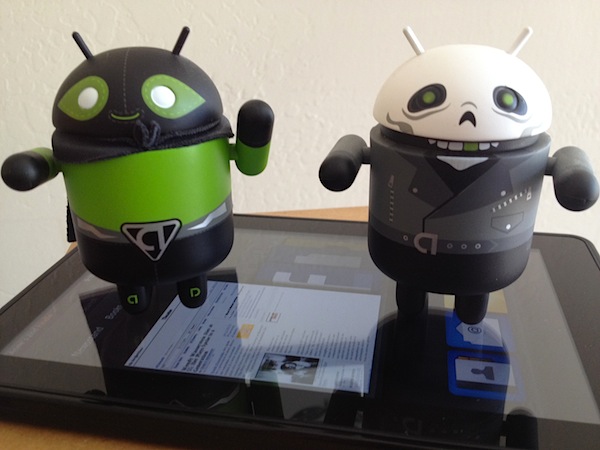
Google has lost control of Android
There was great news on the Android front this week. Samsung reported blow-out earnings, with smartphones -- the majority running Android -- accounting for nearly three-quarters of profits. Meanwhile comScore data spotlights the growing US Android tablet market. Additionally, Google started selling Galaxy Nexus direct, with no carrier contract, for $399. But all three share something in common -- what they foreshadow. Google has lost control of Android, and must swiftly act to regain it.
Forrester Research predicts that proprietary Android will surpass the Google Android ecosystem by 2015. Stated differently, Google's open-source mobile platform risks fracturing into multiple fatally fragmented Android ecosystems. Not one but many. There is little time for Google to demonstrate decisive leadership that can keep the ecosystem largely intact.
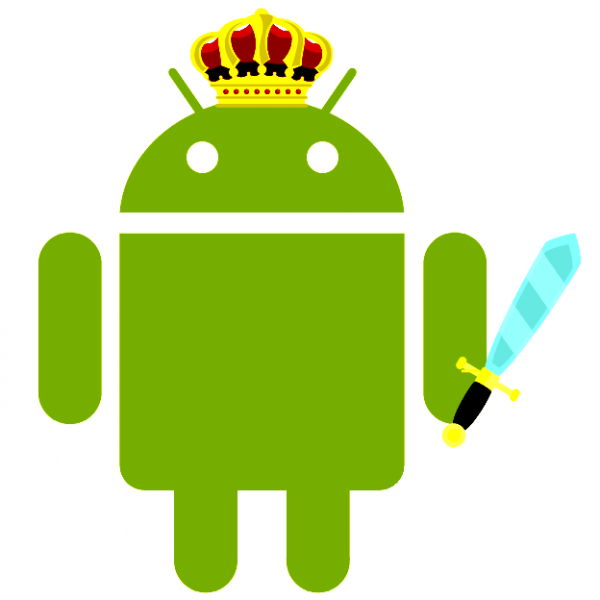
The King is dead -- Samsung snatches crown from Nokia and Apple
On this solemn Friday morning let us bow our heads in a moment of remembrance. The once mighty Nokia has fallen, after reigning supreme over the cellular handset market for 14 years. Apple succumbed in only three months over smartphones. Long live the king. Samsung leads both markets, according to Strategy Analytics.
I warned you, as did many others. Last week: "Nokia does the Windows Phone death dance". Two weeks ago: "Don't cry for me, iPhone". Samsung shipped 93.5 million phones during first quarter, easily eclipsing Nokia's 82.7 million. Nearly half of Samsung's shipments were smartphones -- 44.5 million, compared to 35.1 million for Apple.
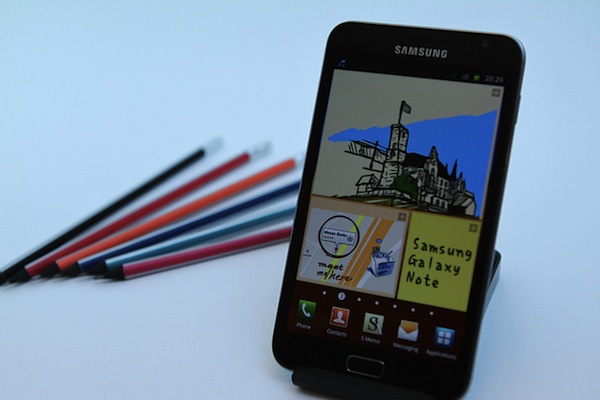
Samsung details Android 4.0 upgrade plan for U.S. tablets and phones
Though the newest version of Android, Ice Cream Sandwich, has been available for a little more than six months, its availability has been extremely limited. Only 2.9% of Android users were running it first week of April, according to the Android Developer Dashboard.
Samsung on Tuesday released an updated list of the U.S. devices that will receive an upgrade to Ice Cream Sandwich, bringing its total number of devices with the operating system version up to thirteen.
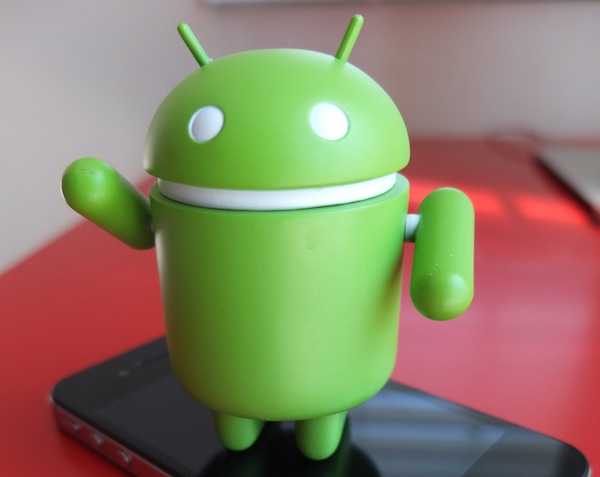
Don't cry for me, iPhone
Mark April 16th on your calendars as a day to remember -- and not because your taxes are due tomorrow, Americans. The weeks ahead promise cool ways to spend your refunds (assuming the tax man giveth back to you). Some of the best smartphones will arrive this week, with a blockbuster announcement coming in 17 days -- from Nokia and Samsung and another Samsung but with a big dash of Google sprinkled in. And Apple? Aaaaaahnt! Sound the game show buzzer. LTE iPhone is nowhere to be seen.
Coming April 22nd are not one, but two tasty 4G treats. As previously announced, Nokia Lumia 900 Windows Phone comes to AT&T all decked out in white -- yours for 100 bucks. Meanwhile, announced today, for an extra C Note, Sprint subscribers can get Galaxy Nexus along with fat $50 credit to put in their Google Wallet; the only real Google phone comes to the only national carrier with unlimited data. Looking ahead, Samsung today dispatched invites for a splashy May 3rd launch event -- it's the next Galaxy phone, baby. Don't cry for me, iPhone!

Who bought 5 million Galaxy Notes, because I want to know
Today's big Samsung Galaxy Note announcement -- 5 million shipped in five months -- has me wondering "Who?" Is it you?
It's a big number for an over-sized smartphone, under-sized tablet measuring 146.85 x 82.95 x 9.65 mm, weighing 178 grams and packing beastly 5.29-inch display. On Dec. 29, 2011, Samsung announced shipment of 1 million Galaxy Notes. Just weeks ago Samsung put shipments at 2 million. That's a helluva jump in just three weeks.
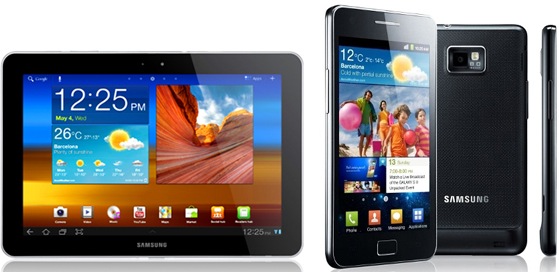
SAP deploys Samsung Android smartphones, tablets
What's all this dirty talk about enterprises going gaga for iPads? During Mobile World Congress, Samsung announced that SAP will deploy Galaxy S II smartphones and Galaxy Tab 10.1 tablets internally. Oh my, perhaps there is a place for Android in the enterprise. But how much room alongside iPad?
SAP CIO Oliver Bussmann says the Android devices will be available to the company's "global workforce as part of our internal device-agnostic strategy. SAP software running on Samsung's Android devices will allow our workforce to do business in the moment". From an enterprise management perspective, he expressed confidence that SAP "can secure our business data on these devices using an extensive range of IT policies".
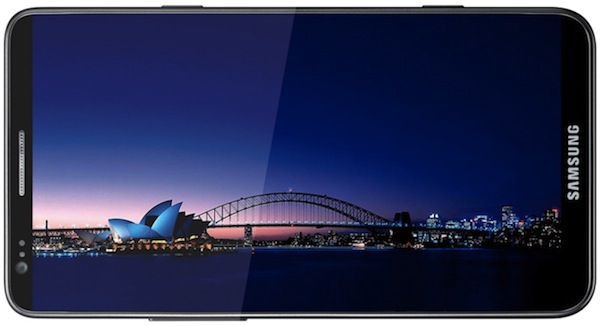
The best smartphone isn't at Mobile World Congress
Now why is that? I want to know. Don't you?
For weeks, persistent leaks and rumors teased about Samsung Galaxy S III and how the phone wouldn't debut at Mobile World Congress. Boy Genius Report has deets that are to die for: 4.8-inch 1080p display, 1.5GHz quad-core Samsung Exynos processor, 8-megapixel rear and 2MP front-facing cameras, ceramic case, 4G LTE and Ice Cream Sandwich.
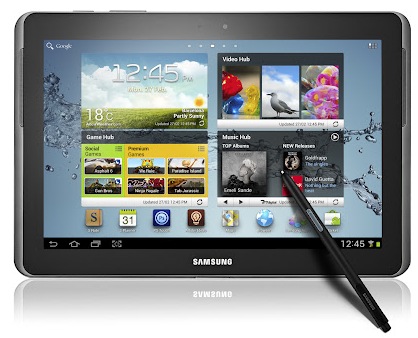
Save us from the stylus! Samsung unveils Galaxy Note 10.1!
I am seriously having Windows Tablet PC déjà vu. Today, at Mobile World Congress, Samsung unveiled Galaxy Note 10.1 -- a tablet with stylus (okay S Pen, as the South Korean electronics giant calls it). So much for capacitive touchscreen tablets -- really, Apple's emphasis on fingers -- liberating us from the stylus. There are reasons why Tablet PC failed, while iPad succeeded. The pen isn't mightier than the finger.
Galaxy Note 10.1 is essentially a larger version of Galaxy Note, which Samsung is promoting heavily here in the United States. Difference: No telephony on the larger Note, which display is 10.1 inches. AT&T sells the 5.3-inch Note for $299.99, although Amazon has it for half as much. I know three people who bought the smaller Note. Two returned theirs, and the other says he will this week. Reason: The pen, which is supposed to be the device's main benefit. Complaints range from accuracy problems to less need for the stylus than expected.
